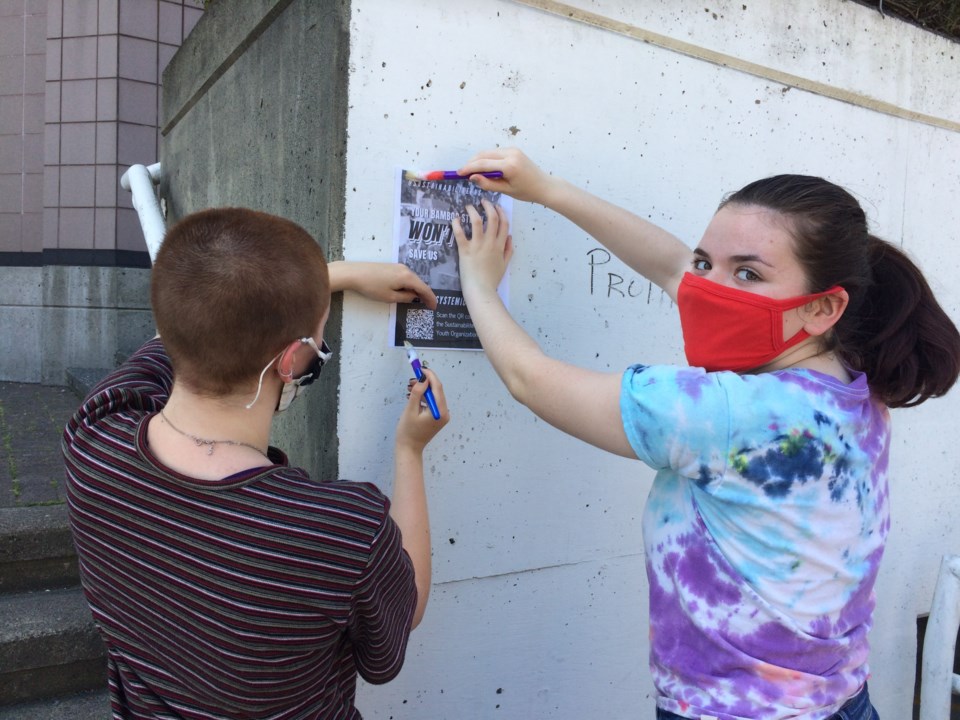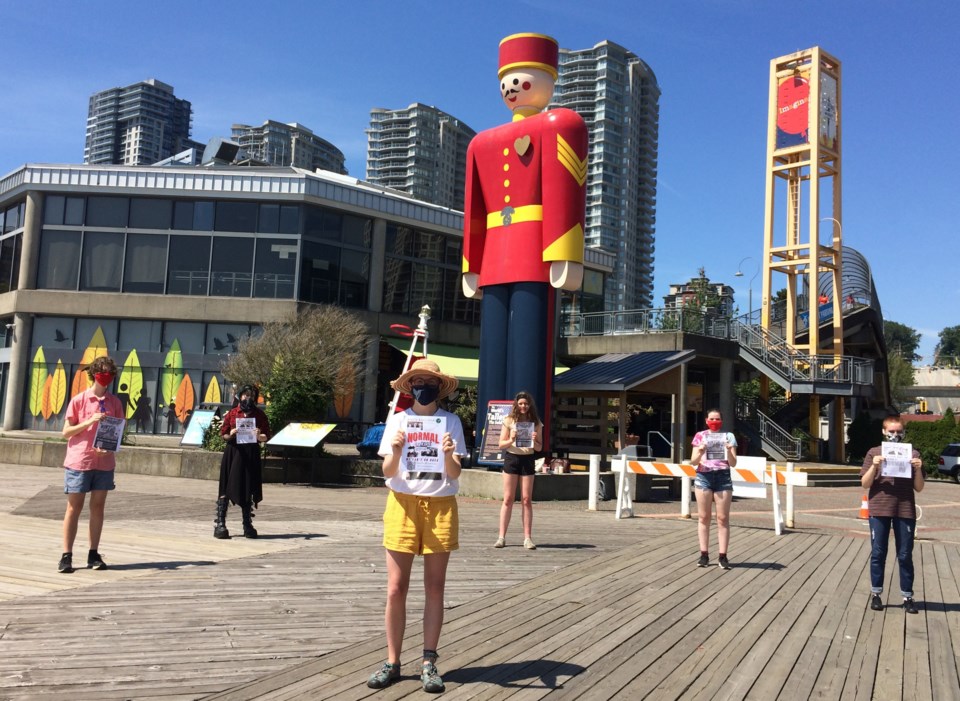Normal is a crisis.
That’s the slogan on one of the stack of posters Max MacInnes-Cann is carrying as she arrives at the Quay. And it’s the philosophy that’s brought her and a handful of other teens out under blistering summer sun to share their message through posters and chalk art.
They’re part of Sustainabiliteens, the teen climate activist group that was responsible for mobilizing 100,000 Vancouverites for last September's general strike for climate justice.
Now that mass gatherings are – at least temporarily – a thing of the past, thanks to COVID-19, the group is still meeting via Zoom to plan how it can continue to get its message out.
MacInnes-Cann, who’s heading into Grade 11 at New Westminster Secondary School, is taking on her first public event as the action planning regional coordinator for the Burnaby-New Westminster-Tri-Cities branch. Their postering effort is building on Sustainabiliteens’ “Not Back to Normal” campaign.

MacInnes-Cann shows her favourite poster, which reads in bold letters, “Normal is a crisis.”
She explains the teens want to get the message out that, for the sake of the planet, we can’t just go back to “normal” after the pandemic.
“We’re looking at COVID-19 as a turning point, so that when COVID is over, we can use this to change our ways and use this as a wake-up moment to become more environmentally friendly,” she says.
She notes the pandemic has given the planet at least a temporary reprieve – citing good-news stories such as the dolphins returning to the Italian coast, and the fact that fewer people are driving because they’re working from home. But, she says, those aren’t likely to be permanent changes.
“I feel like that’s probably not realistic for when we go back,” she says. “More public transit would be great. … There’s still lots to do.”
Part of the teens’ message is the fact that decisions made by individual citizens are only going to solve a small part of the climate crisis.
“Your bamboo straw won’t save us,” says one of the posters.
The message, MacInnes-Cann says, isn’t to discourage people from trying – but to point out that corporations are the ones responsible for the vast majority of planetary pollution and that, even with everybody cooped up inside, it hasn’t made a big enough difference.
“It’s really a teeny-tiny change,” she says. “It’s the corporations.”
MacInnes-Cann says “recovery” after the pandemic has to be bigger than just economic recovery.
“We want a just recovery for the people and the planet first,” she says. “It’s about how we can help each other.”
She also notes the climate crisis can’t be viewed in isolation but rather, as part of the broader picture of social justice. She wants to see increasing ties between the climate movement and anti-racism efforts, including Black Lives Matter.
“We hope that everyone can be included,” she says. “We want it to be not just a whitewashed movement. We need opinions from all sorts of backgrounds and all sorts of diverse ideas.”
And, she points out, there’s also the related issue of wealth inequality.
“Climate change is not just an environmental problem; it’s also a social problem,” she says. “It affects different people in different ways. … If you’re poor, it’s going to be worse for you than if you’re rich.”
That, too, she points out, is tied into issues of race, since poverty is also often racialized.
With all of those big-picture problems facing her and her generation, MacInnes-Cann admits it can sometimes be daunting.
“That’s a big kind of burden I feel sometimes,” she says. “I want to do the planet right, but I don’t know how, exactly. I don’t know how I can make a big difference as just one person.”
Then she smiles.
“That’s why I have a group.”
**
Keep your eyes open in the River Market and Westminster Quay area for the Sustainabiliteens’ posters, which all have a built-in QR code to take you to more information. You can also find out more about Sustainabiliteens by visiting www.climatestrikecanada.org.



